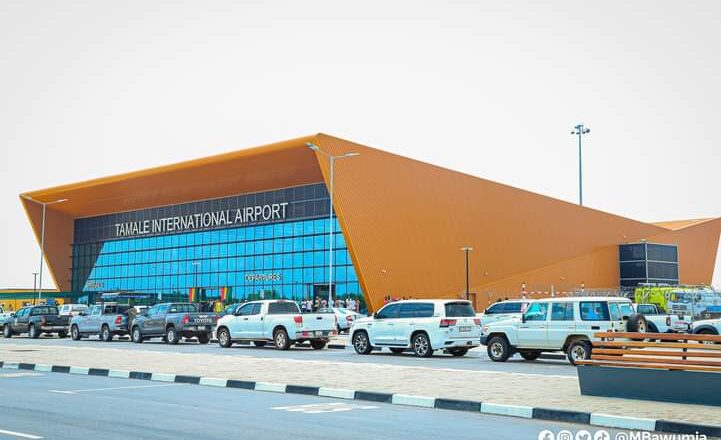Northern Ghana takes a giant leap towards becoming an aviation hub
Ghana’s Vice President Mahamudu Bawumia officially inaugurated the Tamale International Airport Phase II Project at a vibrant ceremony in the Northern Regional capital. This groundbreaking project, a testament to Ghana’s dedication to advancing its aviation sector, is poised to elevate Tamale as a key aviation hub within the West African sub-region.
Under the guidance of the UK-Ghana Business Council (UKGBC), co-chaired by Vice President Bawumia himself, this endeavor signifies the government’s commitment to enhancing aviation infrastructure and fostering economic growth.
The completion of the Tamale International Airport Phase II Project introduces a state-of-the-art terminal building, a multipurpose terminal (Hajj Facility), a 5km single carriageway access road, a 330-capacity car park, and a technical hub for essential services, among other ancillary facilities. The terminal boasts a VIP lounge, two boarding gates, self-service check-in kiosks, check-in desks, airline offices, and commercial retail areas.
With a project cost of $70 million, Phase II proves to be not only a triumph in infrastructure but also in efficient resource allocation, coming in significantly under the cost of Phase I, which amounted to $110 million.
The significance of this project extends far beyond infrastructure development. Northern Ghana, renowned for its vibrant agricultural and economic activities, stands to benefit immensely. Situated in the Sahelian belt, often referred to as Ghana’s food basket, the Tamale International Airport will facilitate access to markets for local agricultural produce, boost tourism, and attract passengers from neighboring countries.
Vice President Bawumia emphasized the government’s intent to leverage the airport’s expansion to support the Northern Development Authority’s (NDA) efforts to export fresh agricultural produce worldwide, generate employment, and create wealth in the region.
Furthermore, the airport’s expansion is poised to serve as a catalyst for industrialization and rapid socio-economic development in Northern Ghana. The Vice President encouraged service providers to capitalize on the completion of the project, suggesting investments in Maintenance, Repair, and Overhaul (MRO) facilities, cargo infrastructure, and aviation training organizations.
In addressing the needs of the Muslim community, Vice President Bawumia pointed out that the Tamale International Airport is expected to become the Hajj hub in Ghana, streamlining travel for the annual pilgrimage to Mecca. The multi-purpose terminal, completed in 2022, has already facilitated Hajj pilgrims’ travel in 2022 and 2023.
However, the Vice President also expressed concern about encroachments on airport lands, urging cooperation between airport operators, regulators, and the Lands Commission to safeguard these lands for future expansions and safety measures.
In closing, Minister of Transport Mr. Kwaku Ofori Asiamah invited airline operators from the subregion and beyond to explore the increasing aviation opportunities in Ghana, promising an unmatched travel experience. With the Tamale International Airport Phase II Project now a reality, Northern Ghana is poised for an aviation transformation that will undoubtedly contribute to the region’s growth and prosperity.





